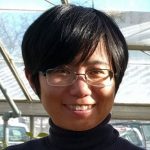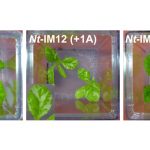Samuel Nonis: The Plant Cell First Author

 Samuel Nonis, first author of Structural and biochemical analyses of concanavalin A circular permutation by jack bean asparaginyl endopeptidase
Samuel Nonis, first author of Structural and biochemical analyses of concanavalin A circular permutation by jack bean asparaginyl endopeptidase
Current Position: PhD thesis under examination and looking for my first post-doc position
Education: PhD student in Biochemistry/Structural Biology, Honours in Genetics at The University of Western Australia.
Non-scientific Interests: I enjoy the camaraderie in team sports, studying the mini eco-system in my veggie patch while tending to it, playing the guitar, and spending peaceful weekends by the woodworking bench. Having grown up in a city (Singapore), I am now learning to appreciate the outdoors in Western Australia.
Brief bio:
Fascinated by how far our genetic material has brought us, in 2014 I did an Honours project in genetics at the University of Western Australia with Prof. Ryan Lister, focussing on targeted epigenetic modifications in the human genome. In 2015 I took these molecular cloning skills to Singapore’s Agency for Science, Technology and Research (A*STAR) and applied them to directed evolution of proteins. From this, I was struck by the complex relationship between protein structure and function so I did a PhD (2017-2021) where I dipped my toes into the field of protein crystallography and ended up learning how to solve structures for a couple proteins during my PhD with Prof. Josh Mylne also at the University of Western Australia. During my PhD, I worked on asparaginyl endopeptidases, a group of peptide-bond cleaving enzymes that also catalyse peptide-bond forming reactions. A better structural understanding of their extremely efficient bond-forming activity is helping them become valuable tools for protein engineers. This research led to an in-depth study of the biosynthesis of concanavalin A, a widely-used carbohydrate-binding protein that’s used for chromatography. Discovered 100 years ago, concanavalin A is a natural substrate of asparaginyl endopeptidase and still remains the only protein known to undergo a shuffling of protein sequence that results in its circular permutation.



